Abstract
With reinforcement contingent on a single peck on either of two available keys (concurrent continuous reinforcement schedules) 4 pigeons, at 80% of free-feeding weights, preferred a smaller-sooner reinforcer (2.5 s of mixed grain preceded by a 0.5-s delay) to a larger-later reinforcer (4.5 s of mixed grain preceded by a 3.5-s delay). However, when the smaller-sooner and larger-later reinforcers were contingent on a concurrent fixed-ratio 31 schedule (the first 30 pecks distributed in any way on the two keys), all pigeons obtained the larger-later reinforcer much more often than they did when only a single peck was required. This "self-control" was achieved by beginning to peck the key leading to the larger-later reinforcer and persisting on that key until reinforcement occurred. We call this persistence "soft commitment" to distinguish it from strict commitment, in which self-control is achieved by preventing changeovers. Soft commitment also effectively achieved self-control when a brief (1-s) signal was inserted between the 30th and 31st response of the ratio and with concurrent fixed-interval 30-s schedules (rather than ratio schedules) of reinforcement. In a second experiment with the same subjects, the fixed ratio was interrupted by darkening both keys and lighting a third (center) key on which pecking was required for various fractions of the fixed-ratio count. The interruption significantly reduced self-control. When interruption was complete (30 responses on the center key followed by a single choice response), pigeons chose the smaller-sooner reinforcer as frequently as they did when only a single choice response was required.
Full text
PDF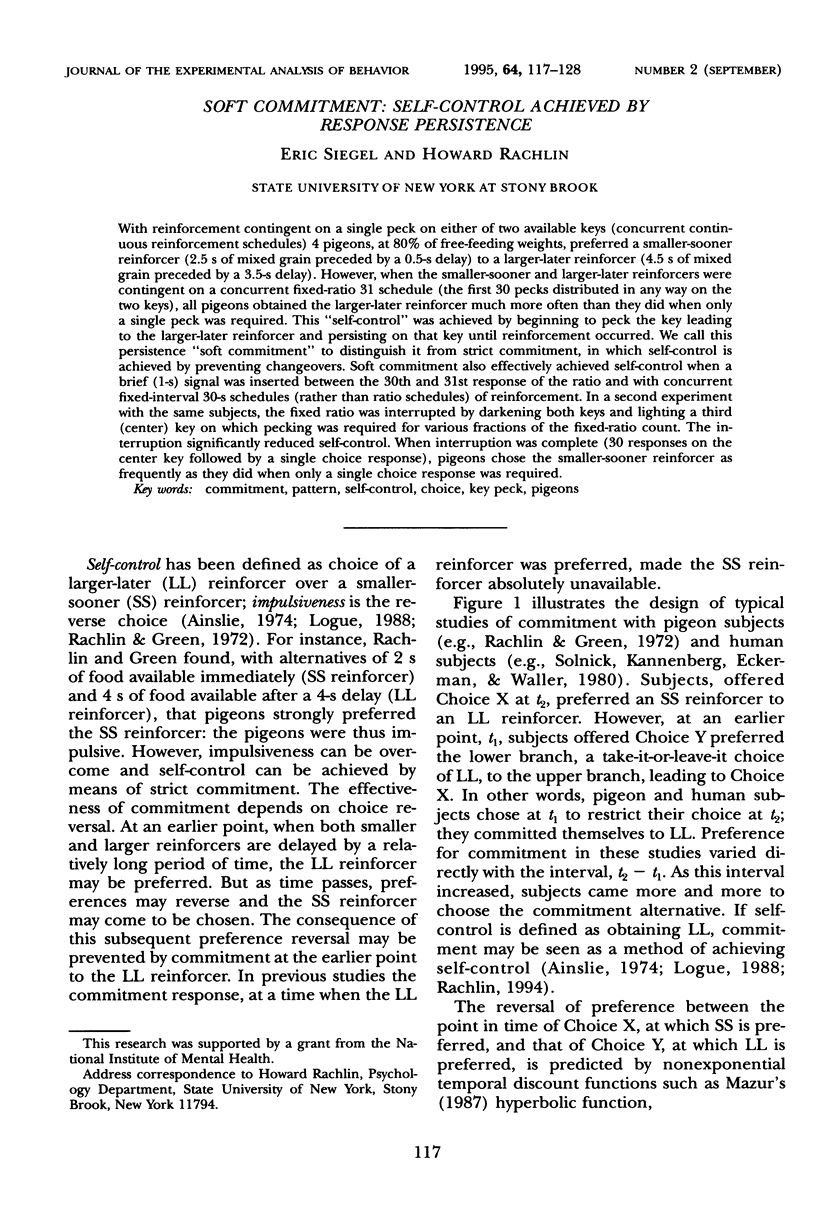
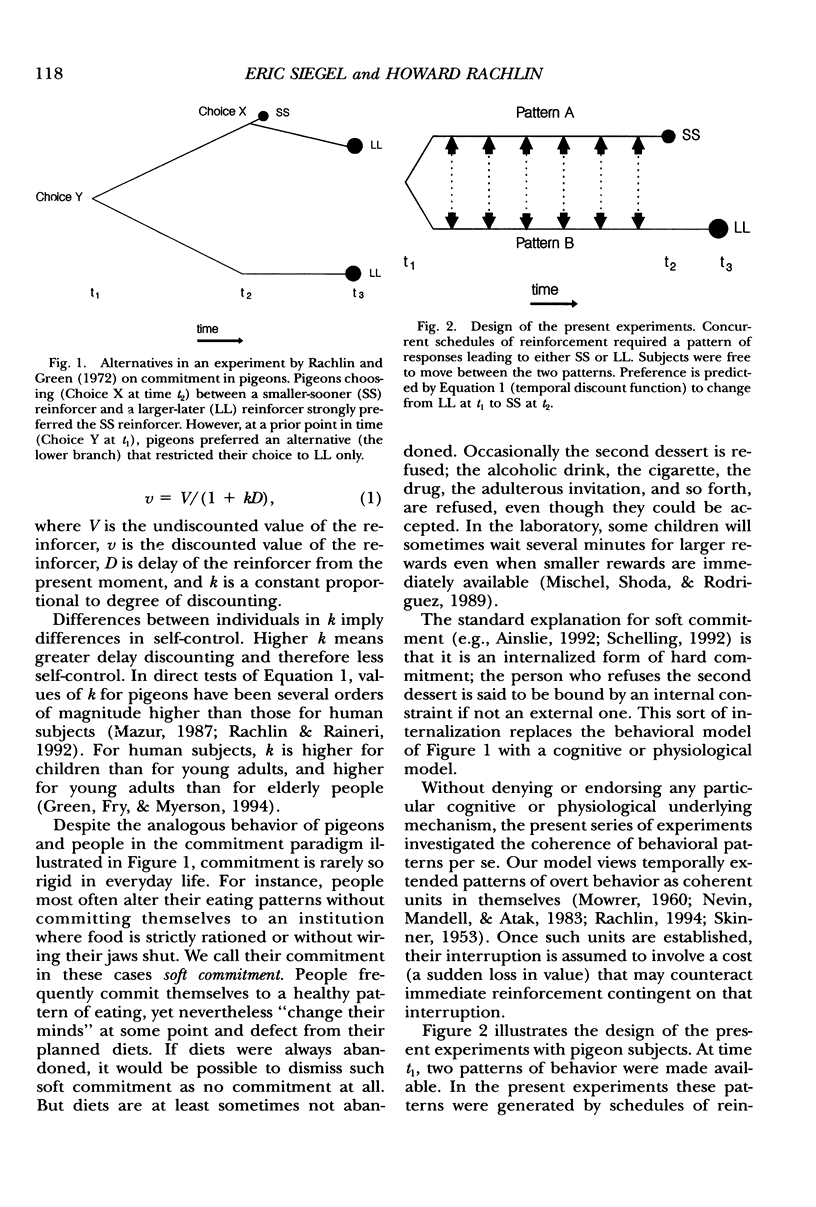
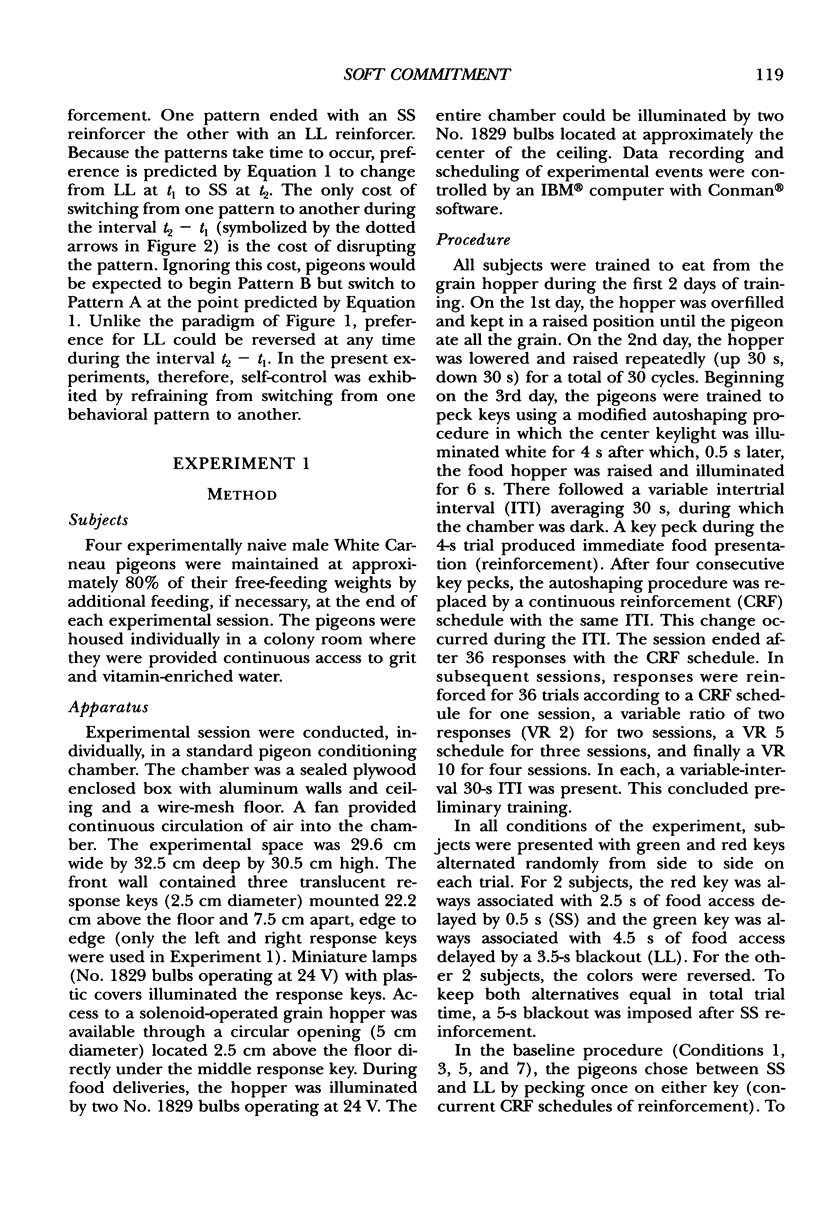
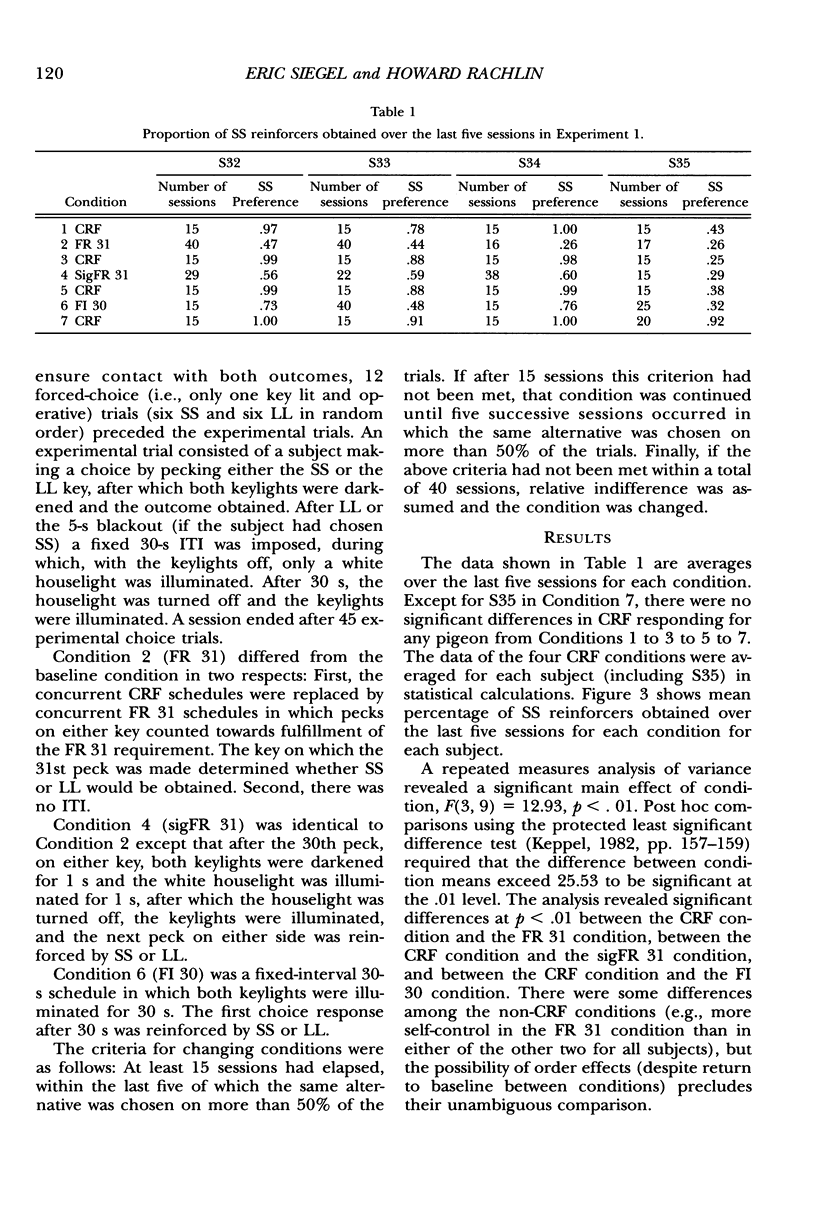
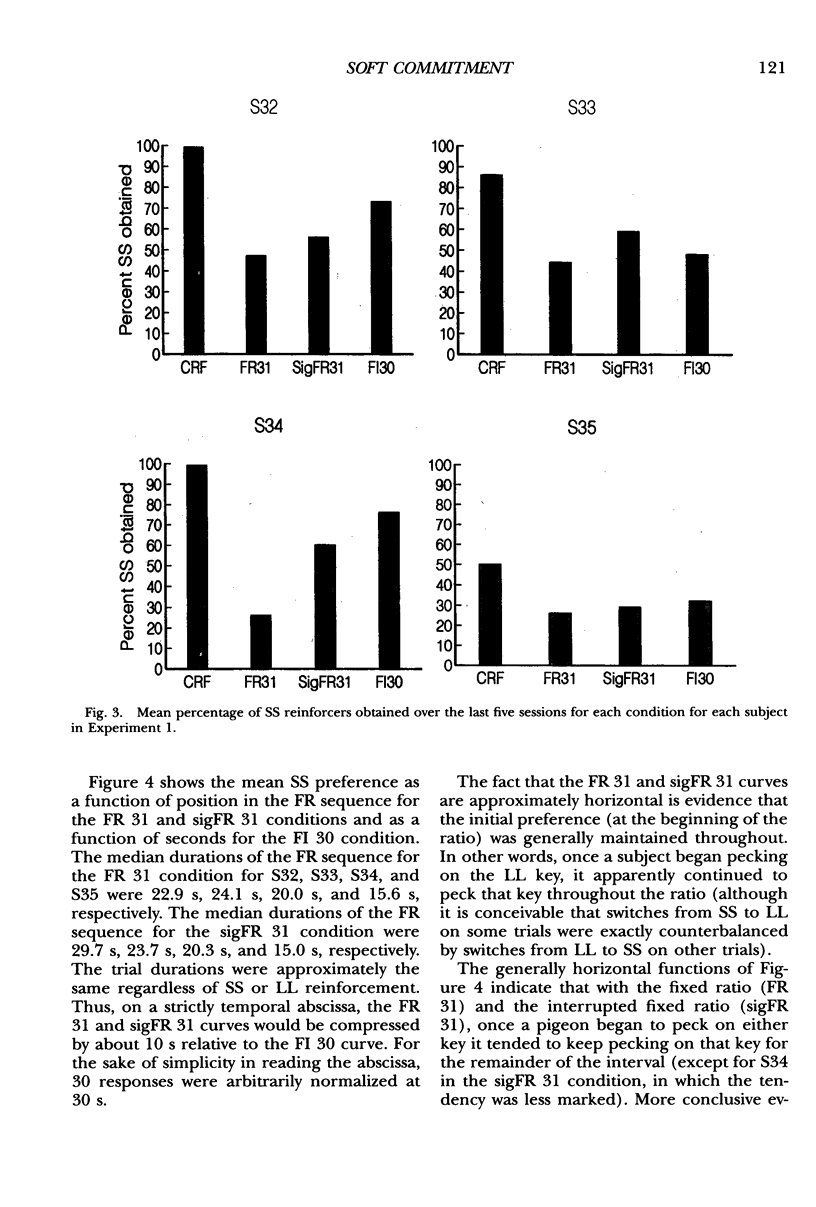
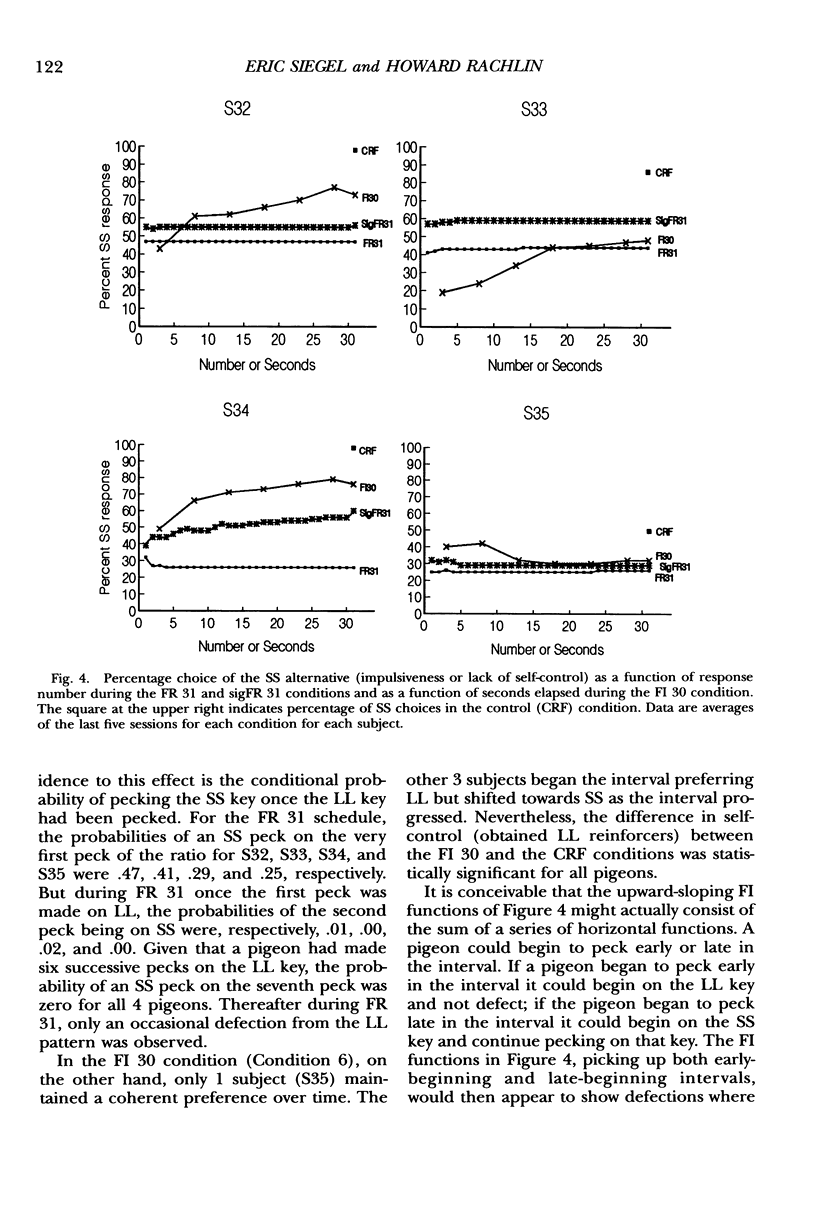
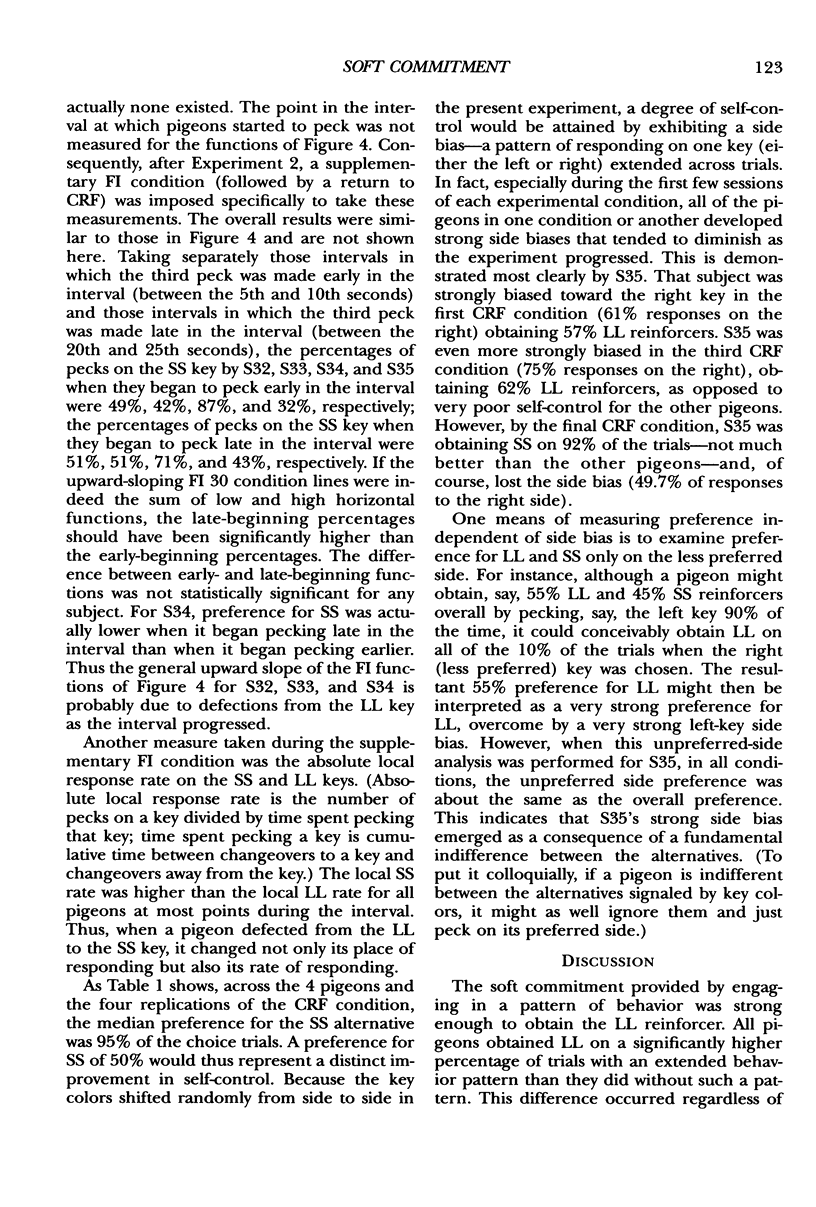
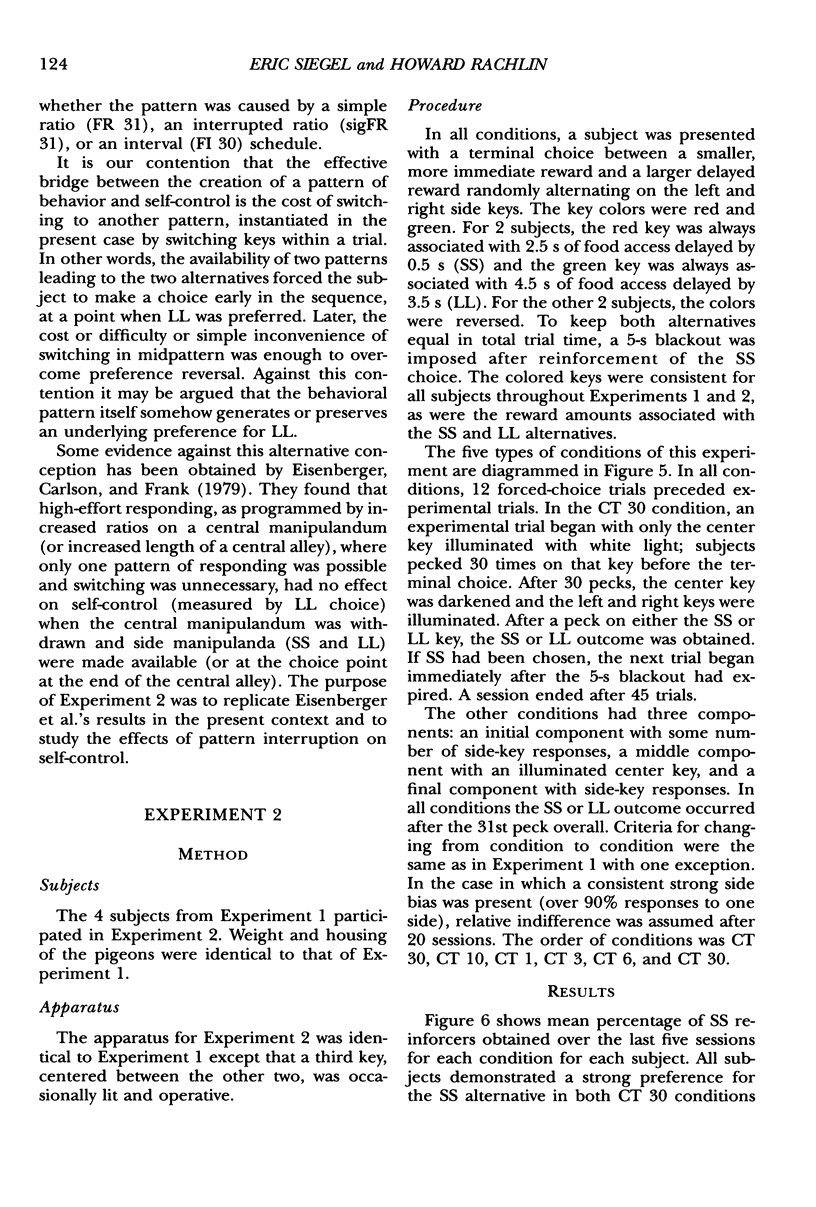
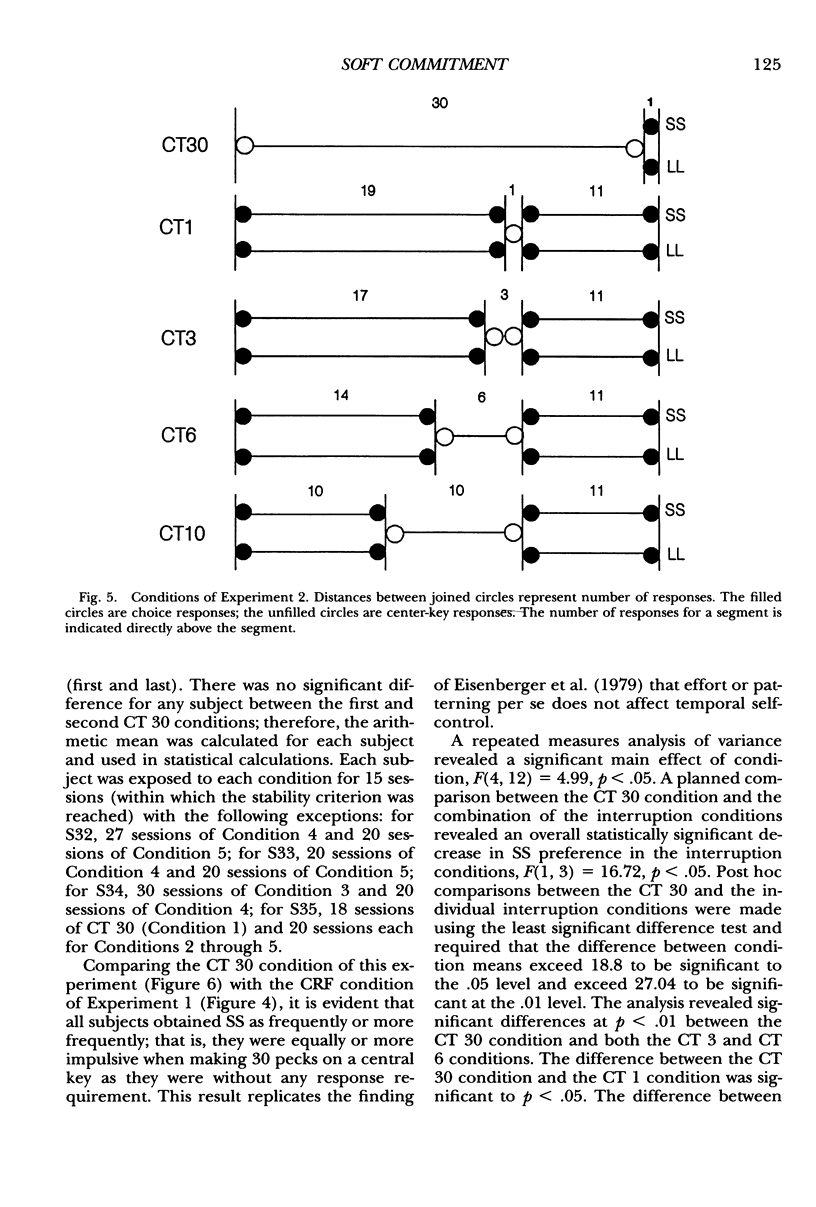
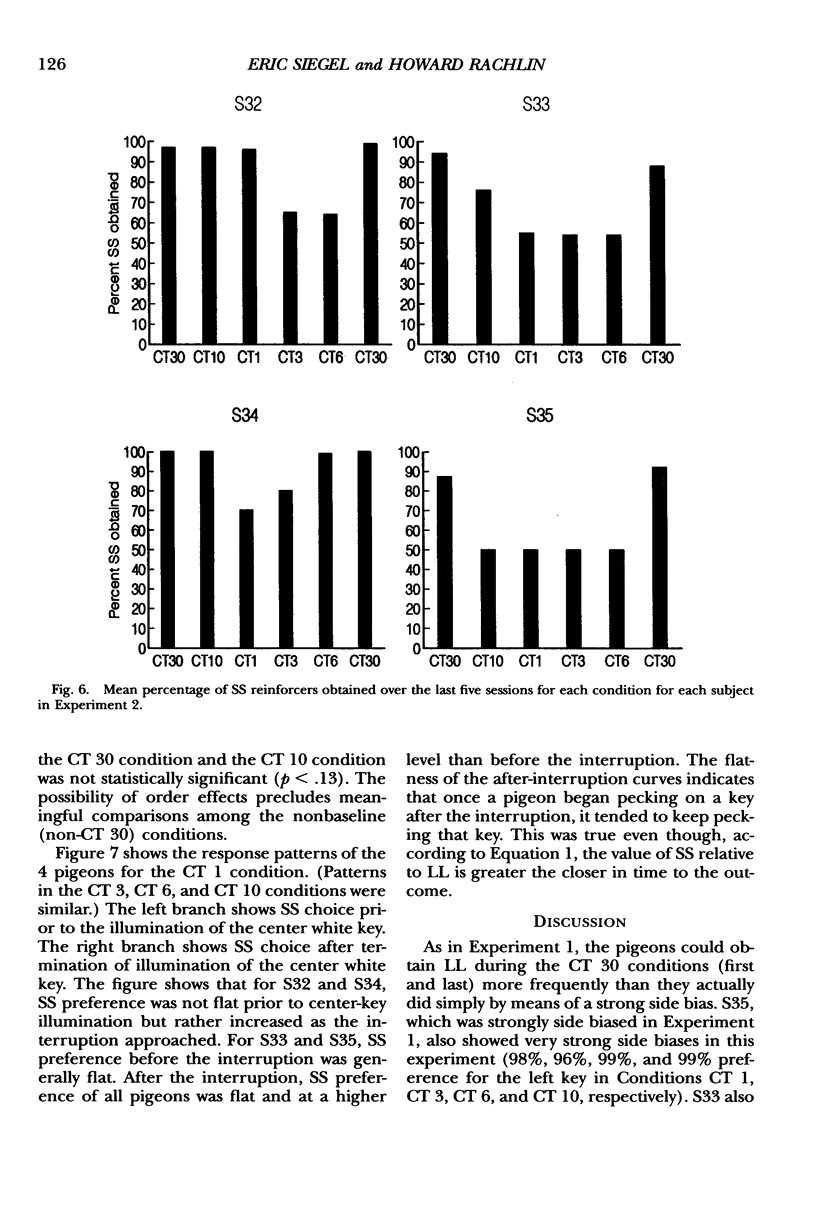
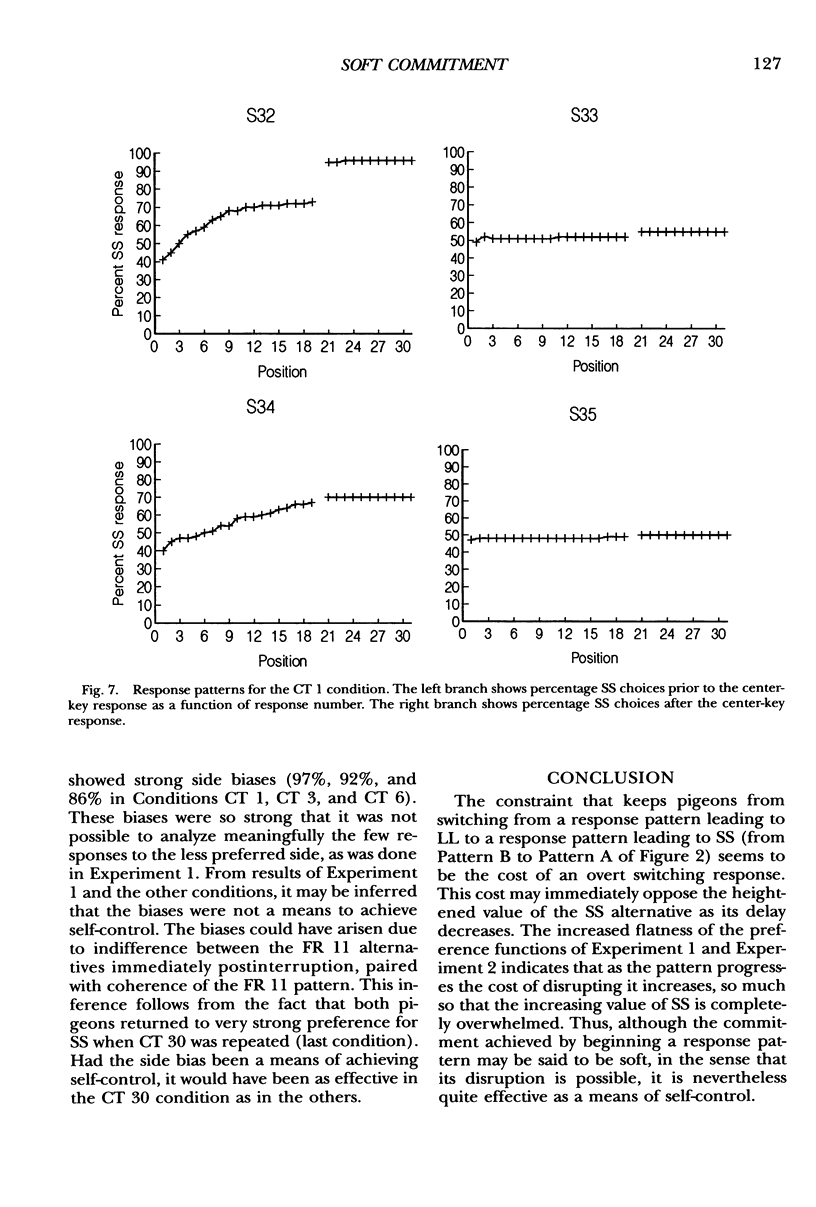
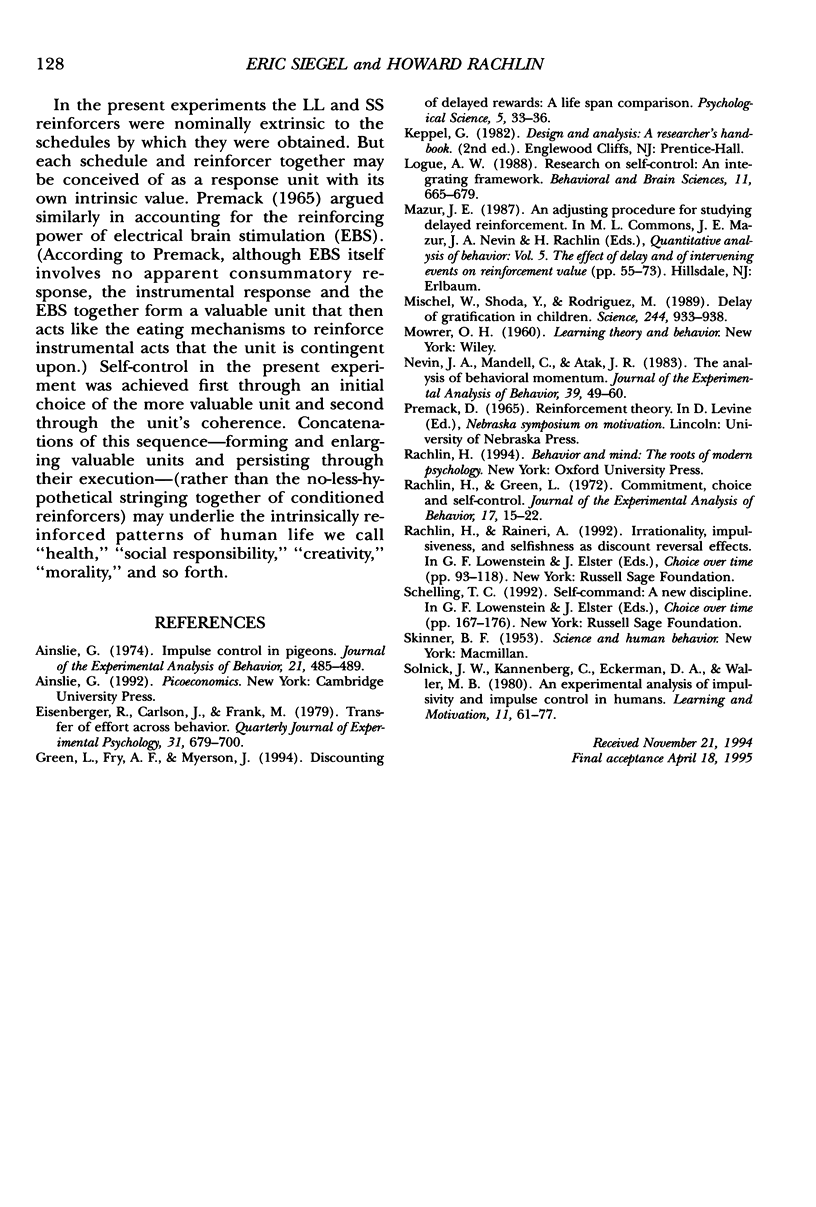
Selected References
These references are in PubMed. This may not be the complete list of references from this article.
- Ainslie G. W. Impulse control in pigeons. J Exp Anal Behav. 1974 May;21(3):485–489. doi: 10.1901/jeab.1974.21-485. [DOI] [PMC free article] [PubMed] [Google Scholar]
- Mischel W., Shoda Y., Rodriguez M. I. Delay of gratification in children. Science. 1989 May 26;244(4907):933–938. doi: 10.1126/science.2658056. [DOI] [PubMed] [Google Scholar]
- Nevin J. A., Mandell C., Atak J. R. The analysis of behavioral momentum. J Exp Anal Behav. 1983 Jan;39(1):49–59. doi: 10.1901/jeab.1983.39-49. [DOI] [PMC free article] [PubMed] [Google Scholar]
- Rachlin H., Green L. Commitment, choice and self-control. J Exp Anal Behav. 1972 Jan;17(1):15–22. doi: 10.1901/jeab.1972.17-15. [DOI] [PMC free article] [PubMed] [Google Scholar]


